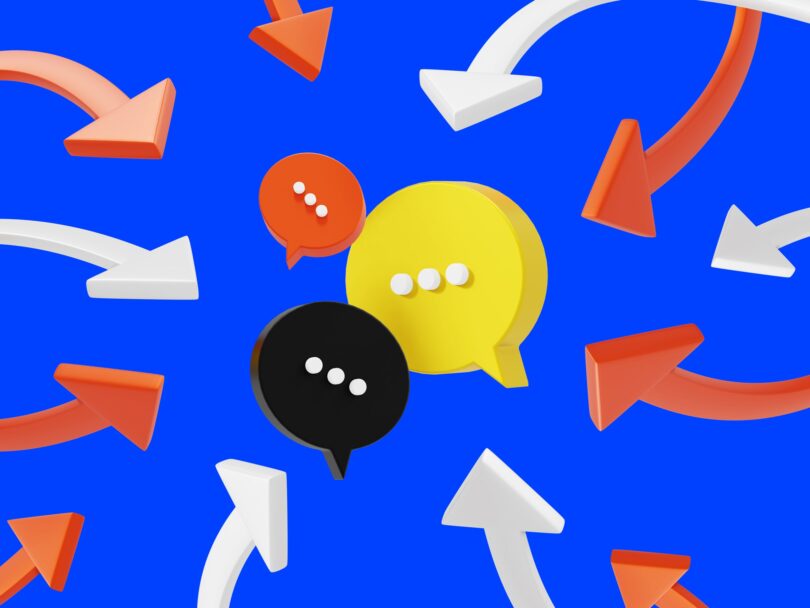The ongoing incursion of artificial intelligence into every app, service, and facet of your life continues. Microsoft’s popular Android keyboard app SwiftKey lets you type by swiping across letters on the screen to generate words. Now, SwiftKey is getting a dose of chatbot to spice things up.
Microsoft released its AI-enhanced Bing chatbot in February. Since then it has gone up against the other chatbot heavyweights, including Google’s Bard and OpenAI’s ChatGPT (which powers Bing Chat’s backend). Microsoft has since been eager to flaunt its chatbot by extending its reach.
The chat-curious can download the beta version of SwiftKey for Android. The April 5 update makes the Bing chatbot available wherever you’re messaging. Users will see three tabs in SwiftKey: one for Bing Search, one marked Chat that lets you talk to Bing Chat’s AI, and one marked Tone that reads your conversations and composes suggested replies with a similar emotional tone. The rollout isn’t happening all at once, so if you install the SwiftKey beta and don’t see the Bing Chat tabs, keep checking back.
It’s Android-only, of course. Users of other operating systems can access Bing Chat through the Bing app or through a web browser.
This kind of AI tech makes sense on the app, given that the point of SwiftKey is to discern what meaning you’re trying to get out with your swipes and gestures. Of course, it’s one thing to guess the word you mean and quite another to do the generative AI thing of making up whole messages you could send. But hey, it’s AI texting. What could possibly go wrong?
Read on for some more consumer tech news.
Google Moves Podcasts Into YouTube Music
Google likes smushing together its services. Its messaging and videochat services Meet and Duo were combined into one confusing package last year. Prior to that, Google fused its dedicated Google Play music service into YouTube Music.
Next, podcasts are making their way into YouTube Music. 9to5Google spotted the addition of a Podcasts tab to the YouTube Music app. It’s not a confirmation that Google is planning to ditch its dedicated Podcasts mobile app, but it wouldn’t exactly be out of character for the company to do so in the near future.
Still, Google is clearly eager to get more action going with podcasts. Maybe syncing its Podcasts app with its YouTube apps will also absorb some of the audience from the popular music and video platform. Though, obviously, services like Spotify and Apple Music have a heck of a head start.
A Kobo for Writing
Rakuten, best known for its Kobo e-readers, which serve as alternatives to Amazon’s Kindles, has a new E Ink tablet you can write on. The Kobo Elipsa 2E has a 10.3-inch screen that lets you read ebooks and documents while scribbling notes with the accompanying pen.
At $400, the Elipsa is pricier than its main competitors, the ReMarkable 2 and Amazon’s Kindle Scribe. The Kindle Scribe may be later to the lineup than the ReMarkable, but it is still the big boi on the E Ink playground, just by virtue of Amazon’s dominance in the e-reader and ebook market. Undeterred, Kobo has kept its competitive cool and churned out consistently quality devices. They may not have the ubiquity of Amazon’s massive library and just general omnipresence, but you can always check out library books on them.
The Elipsa is available for preorder; the company says it will ship April 19.
Peloton Watch
Good news for any wearers of Samsung, Google, and Fossil smartwatches who also own a Peloton: The company’s app now works on any Android smartwatch running WearOS 3 or later. That means Peloton’s service works on Samsung’s Galaxy Watches, and that’s a rather large number of devices considering the Galaxy Watch is second in market share only to the Apple Watch.
Peloton syncs with WearOS watches about how you’d expect it to. Through the app, the watch can track your heart rate while you’re exercising on your own or on any of Peloton’s (very expensive) pieces of workout equipment.
Subscribe to Your Car
Gone are the days of the dumb car. Every vehicle from Audi to Volkswagen has some kind of connected tech inside it, and manufacturers are only adding more features. The increasingly techified nature of the car has also made automakers eager to embrace another aspect of the modern always-online economy: regular subscription payments.
Companies like BMW have caught flak recently for offering subscriptions in some countries to services such as heated seats—a feature included in the car but toggled off if the user isn’t paying. You might bristle at the idea of paying yet another subscription fee, but car companies see it as a way to update their vehicles with new features more often—while also keeping subscribers hooked.
This week on the Gadget Lab podcast, WIRED staff writer Aarian Marshall joins the show to drive a discussion about how car companies are trying to squeeze money out of drivers through subscriptions and how this business model is now making its way into the used car market.





